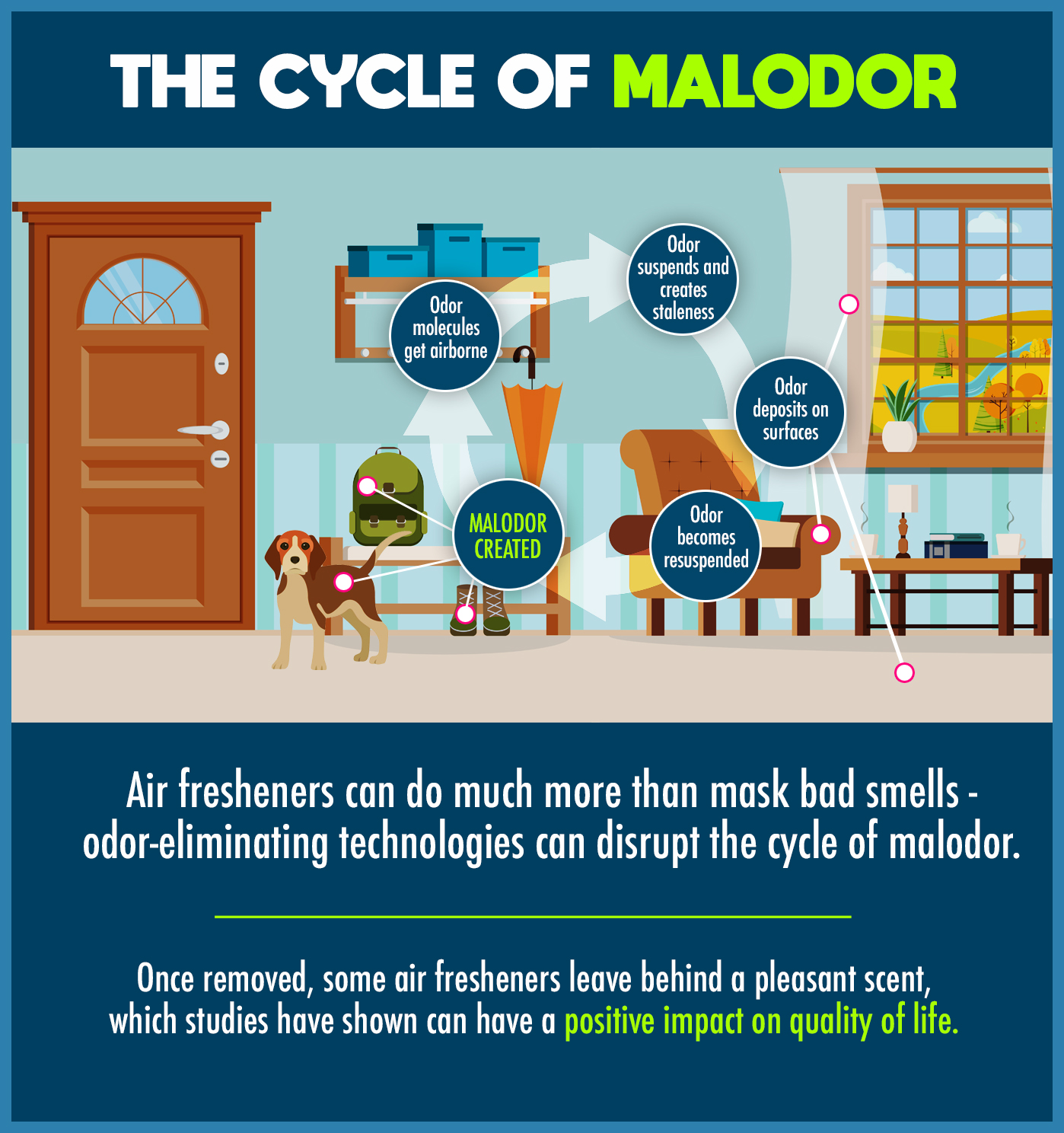Air fresheners may help mitigate the psychological, physical, social, and economic effects associated with stale indoor air and bad smells
“The Impact of Indoor Malodor: Historical Perspective, Modern Challenges, Negative Effects, and Approached for Mitigation” was published in the January 2020 edition of Atmosphere, an international peer-review journal.
Abstract:
Malodors, odors perceived to be unpleasant or offensive, may elicit negative symptoms via the olfactory system’s connections to cognitive and behavioral systems at levels below the known thresholds for direct adverse events. Publications on harm caused by indoor malodor are fragmented across disciplines and have not been comprehensively summarized to date. This review examines the potential negative effects of indoor malodor on human behavior, performance and health, including individual factors that may govern such responses and identifies gaps in existing research. Reported findings show that indoor malodor may have negative psychological, physical, social, and economic effects. However, further research is needed to understand whether the adverse effects are elicited via an individual’s experience or expectations or through a direct effect on human physiology and well-being. Conversely, mitigating indoor malodor has been reported to have benefits on performance and subjective responses in workers. Eliminating the source of malodor is often not achievable, particularly in low-income communities. Therefore, affordable approaches to mitigate indoor malodor such as air fresheners may hold promise. However, further investigations are needed into the effectiveness of such measures on improving health outcomes such as cognition, mood, and stress levels and their overall impact on indoor air quality.



